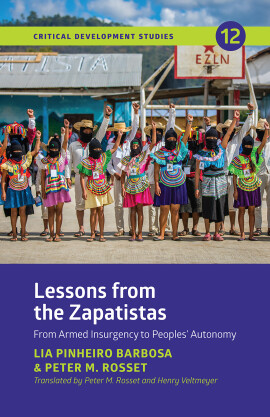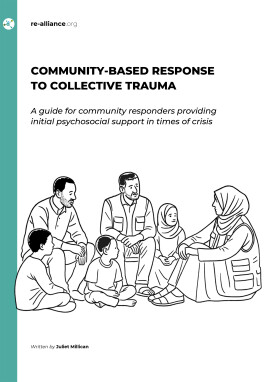
Development and Social Diversity
Social diversity hinges on three universal human realities. First, that each individual is unique. Second, that individuals and their societies are inter-related and inter-dependent. And third, that societies and cultures are dynamic: change, whether rapid or gradual, affects different members of society in ways that reflect differences in power and status. In this collection Naila Kabeer examines the meaning of gender relations in the contexts of development practice and of development institutions: a theme taken up by Lewis B. Dzimbiri in relation to refugee programmes and by Yezichalem Kassa and Feleke Tadele in diagnosing the needs of rural communities. Mark Gorman focuses on the needs of elderly people, while Tom and Francesca Scanlon and Maria Luiza Nobre Lamarao describe the challenges of working with street children and adolescents. Shubi L. Ishemo argues against approaches to development and relief that are not culturally familiar to the people affected.
Published: 1996
Pages: 112
eBook: 9780855986964
Paperback: 9780855983437
| * Preface | |||
|---|---|---|---|
| Deborah Eade | |||
| * Understanding difference and building solidarity: a challenge to development initiatives | |||
| Mary B. Anderson; | |||
| * Gender, development and training: raising awareness in the planning process | |||
| Naila Kabeer | |||
| * Working with street children | |||
| Tom Scanlon, Francesca Scanlon and Maria Luiza Nobre Lamarao | |||
| * Older people and development: the last minority? | |||
| Mark Gorman | |||
| * Culture, liberation and "development" | |||
| Shubi L. Ishemo | |||
| * The politics of development in longhouse communities in Sarawak | |||
| Dimbab Ngidang | |||
| * What is development? | |||
| Hugo Slim | |||
| * Research into local culture:implications for participatory development | |||
| Odhiambo Anacleti | |||
| * An education programme for peasant women in Honduras | |||
| Rocio Tabora | |||
| * Challenging gender stereotypes in training: Mozambican refugees in Malawi | |||
| Lewis B Dzimbiri; | |||
| * Defining local needs: a community based diagnostic survey in Ethiopia | |||
| Yezichalem Kassa and Feleke Tadele | |||
| * Empowerment examined | |||
| Jo Rowlands | |||
| * Some thoughts on gender and culture | |||
| Maitrayee Mukhopadhyay | |||
| * Who is the expert? | |||
| Valerie Emblen | |||
| * Annotated bibliography |
Mary Anderson Mary B. Anderson is President of the Collaborative for Development Action, Inc., a small consulting firm based in Cambridge, Massachusetts, USA. An economist, Mary Anderson has specialized in: rural development strategies that build on local capacities; gender analysis in development programming; the relationships between emergency relief assistance and long-term development; and educational policies as these affect access to primary education in developing countries
Walking in Another’s Shoes
Umemoto, Kare
Journal of Planning Education and Research, Vol. 21 (2001), Iss. 1 P.17
https://doi.org/10.1177/0739456X0102100102 [Citations: 113]Whose Recovery Is It Anyway?
PEACOCKE, RICHARD L.
Journal of Psychiatric and Mental Health Nursing, Vol. 16 (2009), Iss. 2 P.216
https://doi.org/10.1111/j.1365-2850.2008.01302.x [Citations: 0]Leveraging social capital of the church for development: A case study of a farming community in Wellington
Beukes, Jacques W.
HTS Teologiese Studies / Theological Studies, Vol. 75 (2019), Iss. 4
https://doi.org/10.4102/hts.v75i4.5528 [Citations: 9]Transforming Education for Personalized Learning
Neurodivergent Learners
Keates, Nathan
Waldock, Krysia Emily
2024
https://doi.org/10.4018/979-8-3693-0868-4.ch002 [Citations: 0]Theological basis of community development: A public inquiry from a practical theological view
Nanthambwe, Patrick
Verbum et Ecclesia, Vol. 44 (2023), Iss. 1
https://doi.org/10.4102/ve.v44i1.2750 [Citations: 0]




